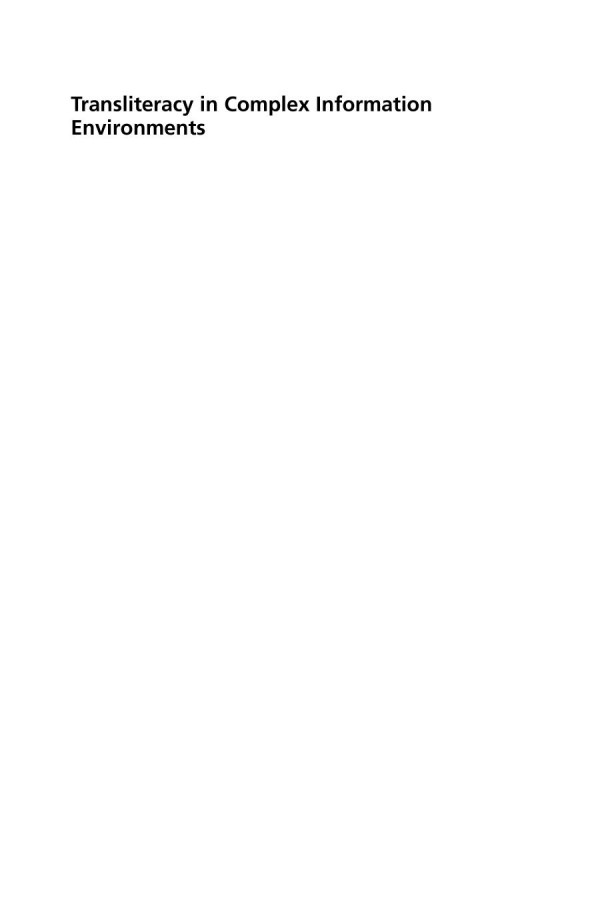

Most ebook files are in PDF format, so you can easily read them using various software such as Foxit Reader or directly on the Google Chrome browser.
Some ebook files are released by publishers in other formats such as .awz, .mobi, .epub, .fb2, etc. You may need to install specific software to read these formats on mobile/PC, such as Calibre.
Please read the tutorial at this link. https://ebooknice.com/page/post?id=faq
We offer FREE conversion to the popular formats you request; however, this may take some time. Therefore, right after payment, please email us, and we will try to provide the service as quickly as possible.
For some exceptional file formats or broken links (if any), please refrain from opening any disputes. Instead, email us first, and we will try to assist within a maximum of 6 hours.
EbookNice Team

Status:
Available5.0
7 reviewsTransliteracy in Complex Information Environments considers this relatively new concept, which has attracted a great deal of interest in the library and information field, particularly among practitioners. The notion of transliteracy arises in the context of increasingly complex information and communication environments characterised by multimodality and new roles of creators and consumers. Transliteracy concerns the ability to apply and transfer a range of skills and contextual insights to a variety of settings. Rather than focusing on any one skillset or technology, transliteracy is about fluidity of movement across a range of contexts. This book is concerned with processes of learning and knowledge creation. An understanding of transliteracy emergesfrom research data gathered in university and high school settings. Transliteracy is considered in relation to other literacies as an overarching framework. Applications in education and lifelong learning are discussed. Social aspects of transliteracy are considered in relation to academic cultures and broader social trends, particularly hybrid cultures